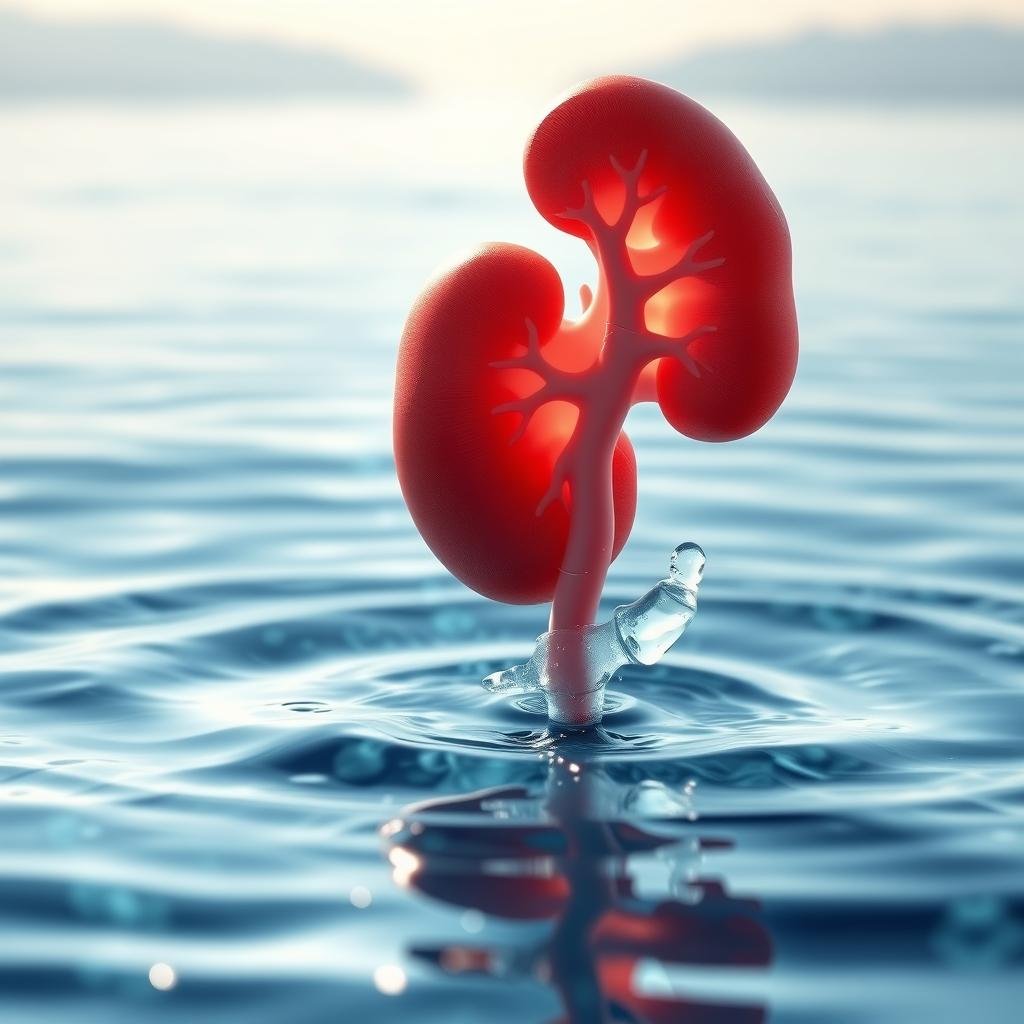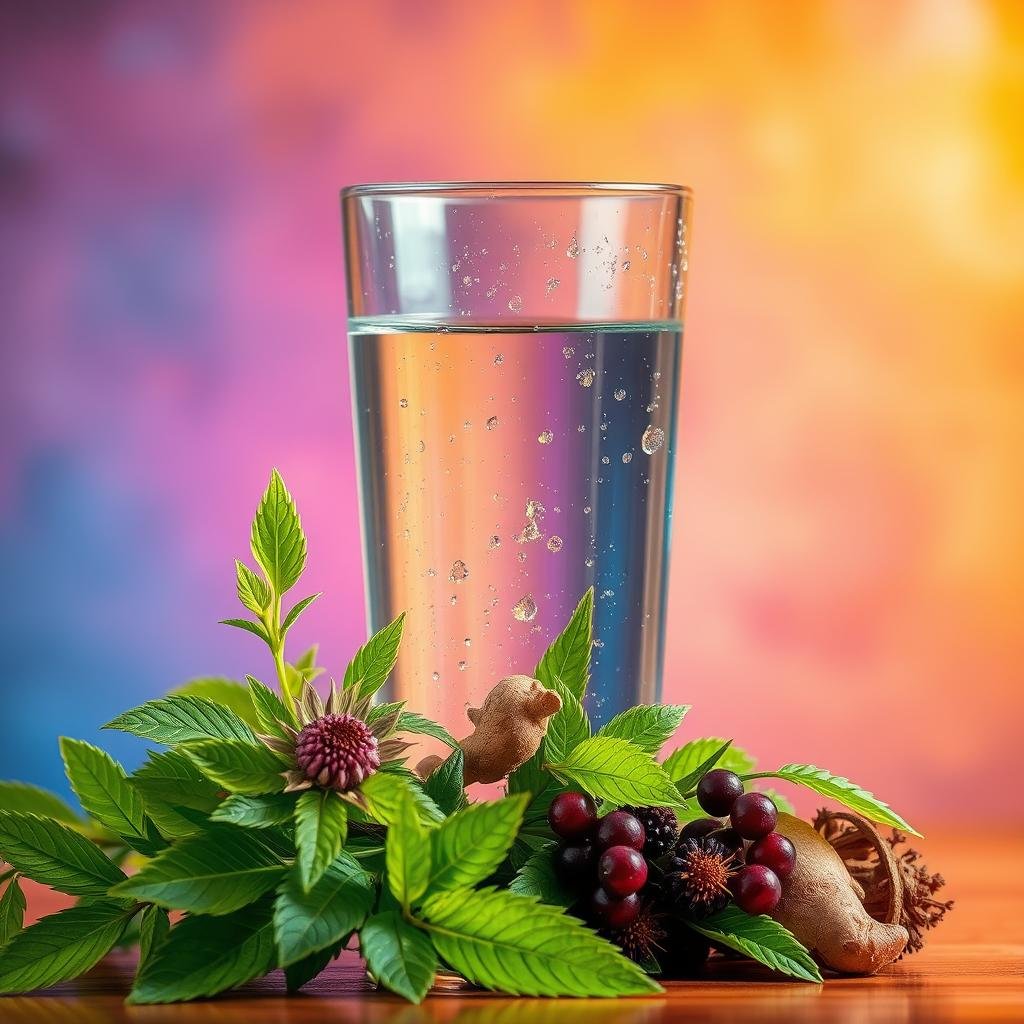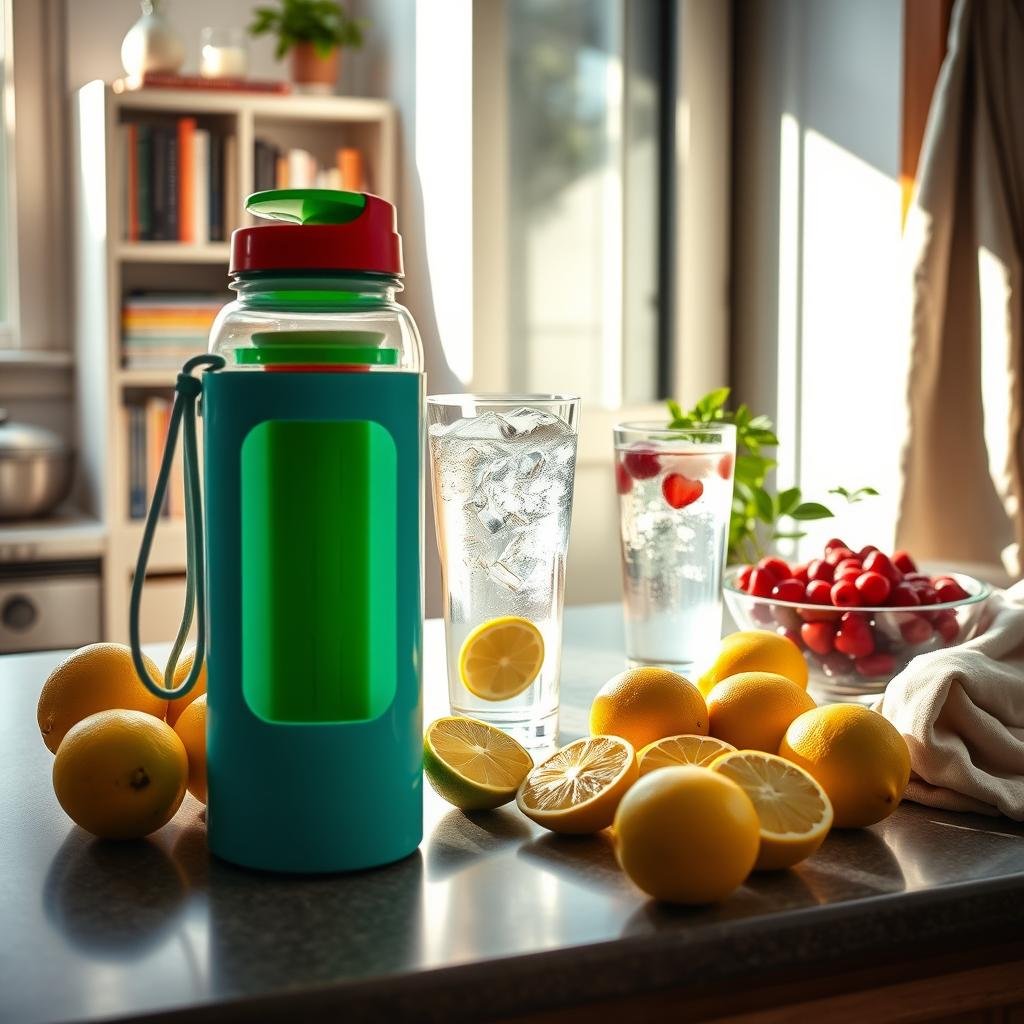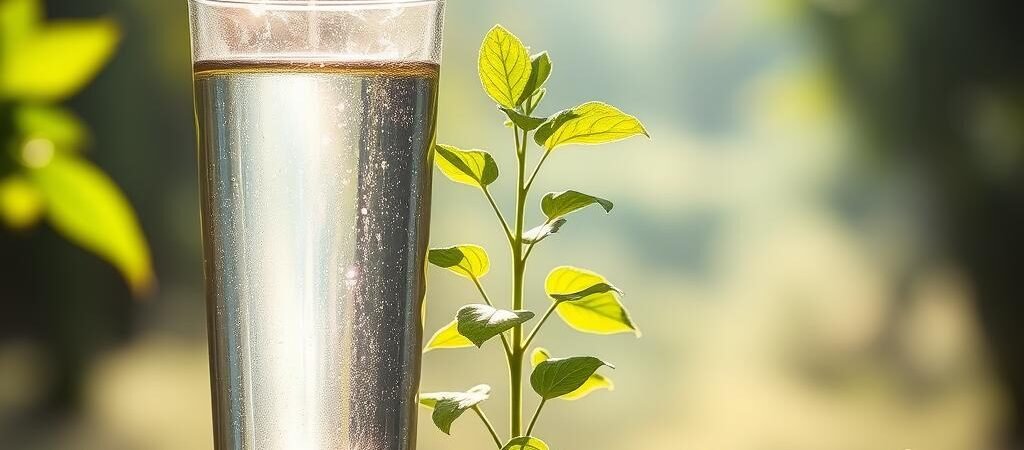Ever wonder why staying hydrated feels so good? It’s because water is the foundation of your body’s daily functions. From boosting energy to sharpening focus, proper hydration keeps you at your best.
Your body is made up of 60% water, and every cell relies on it to thrive. Even a small drop in fluid levels can impact your mood, energy, and cognitive performance. Staying hydrated isn’t just about quenching thirst—it’s about fueling your health from the inside out.
Ready to unlock the full potential of your day? Start by making hydration a priority. Your skin, mind, and overall well-being will thank you.
Why Hydration is Essential for Life
Why does every cell in your body crave proper fluid balance? The answer lies in how water fuels your daily life. From regulating temperature to supporting organ function, staying hydrated is non-negotiable for optimal health.
The Role of Water in Bodily Functions
Your body depends on fluids to perform essential tasks. Water helps regulate temperature through sweat and maintains blood viscosity for smooth circulation. It also aids your kidneys in filtering waste, preventing energy-intensive concentration of toxins.
Did you know infants are 75% water, while elderly individuals are about 55%? This shows how hydration needs change with age. Even small drops in fluid levels can shrink cells, triggering thirst mechanisms to restore balance.
How Dehydration Impacts Health
Dehydration doesn’t just make you thirsty—it affects your entire system. A 1-3% fluid loss can lead to headaches, fatigue, and impaired memory. For older adults, reduced thirst signals increase the risk of dehydration, impacting organ function within hours.
About 22% of fluid intake in the U.S. comes from food, but diets rich in fruits and vegetables can boost this number. Staying hydrated isn’t just about drinking water; it’s about maintaining a balance that keeps your body thriving.
The Science Behind Hydration
What’s the secret behind your body’s ability to stay in harmony? It’s all about homeostasis—the delicate balance that keeps everything running smoothly. From regulating body temperature to maintaining fluid levels, your body has a built-in system to ensure you stay hydrated and healthy.
How Water Maintains Homeostasis
Your body relies on fluid balance to function optimally. The hypothalamus acts as your hydration command center, monitoring body temperature and fluid levels. When you lose 2-3% of your body’s water, osmoreceptors in the brain trigger thirst, signaling it’s time to drink.
Sodium balance also plays a key role. It ensures fluids are distributed properly between cells, tissues, and organs. This process keeps your energy levels stable and supports vital functions like digestion and circulation.
The Physiology of Thirst
Feeling thirsty? That’s your body’s way of saying it needs more fluid. Thirst is a late-stage warning sign of dehydration, so don’t ignore it. Anticipatory reflexes kick in even before the water you drink reaches your bloodstream, preparing your body for rehydration.
Exercise, sweating, and even alcohol can disrupt your natural thirst mechanisms. For example, alcohol suppresses the release of antidiuretic hormone, leading to increased fluid loss. Staying hydrated during physical activity or after a night out is crucial to maintaining balance.
The Power of Hydration: How Water Can Transform Your Health
Staying hydrated isn’t just about drinking water—it’s about unlocking your potential. Proper fluid balance fuels your physical performance and sharpens your cognitive function, helping you achieve your best self every day.
Boosting Physical Performance
Did you know even a 2% drop in fluid levels can reduce endurance by 10%? When you’re dehydrated, your muscles struggle to produce energy, and your body’s ability to recover slows down. Staying hydrated helps your cells generate ATP, the fuel your muscles need for explosive power.
Proper hydration also prevents exercise-induced cortisol spikes, keeping your stress levels in check. Athletes who maintain optimal fluid balance see a 25% increase in reaction speed, giving them a competitive edge.
Enhancing Cognitive Function
Your brain thrives on hydration. A 1.4% fluid loss can impair mood and concentration, while a 1.6% loss worsens working memory. Hydrated neurons fire faster, improving decision-making and focus.
Olympic athletes swear by hydration strategies to stay sharp during competitions. By keeping your fluid levels balanced, you can enhance your mental clarity and stay at the top of your game.
Make hydration a priority. Your body and mind will thank you for the boost in energy and performance.
Hydration and Physical Performance
When it comes to exercise, hydration can make or break your results. Whether you’re a professional athlete or a weekend warrior, maintaining fluid balance is essential for peak performance.
How Dehydration Affects Athletes
Athletes can lose 6-10% of their body weight through sweat during intense activity. Even a small drop in fluid levels can lead to fatigue, cramps, and reduced endurance. Staying hydrated ensures your muscles and organs function at their best.
Heat acclimatization requires up to 6 liters of fluid daily, compared to the standard 3 liters. This highlights the importance of adjusting your intake based on activity level and environmental conditions.
Optimal Hydration for Exercise
To stay ahead of dehydration, follow these strategies:
- Use a 4-stage hydration protocol, similar to NFL teams, to maintain fluid balance before, during, and after workouts.
- For sessions lasting over 60 minutes, electrolyte drinks outperform plain water by replenishing lost minerals.
- Avoid “voluntary dehydration” by drinking regularly, even if you don’t feel thirsty.
- Calculate your personalized sweat rate with a simple field test to tailor your hydration plan.
- Rehydrate post-workout with fluids containing sodium to restore balance quickly.
By prioritizing hydration, you’ll enhance your exercise routine and achieve better results. Your body will thank you for the extra care!
Hydration and Brain Function
Did you know your brain thrives on hydration? Every thought, memory, and emotion relies on proper fluid balance. Even a small drop in hydration can impact your cognitive function, leaving you feeling foggy and unfocused.
The Link Between Water and Memory
Your memory is directly tied to hydration. Studies show students who stay hydrated score 14% higher on exams. Why? Hydration increases grey matter volume, enhancing your ability to store and recall information.
Dehydration can shrink brain cells, impairing short-term memory. A 1.4% fluid loss increases headache frequency by 47%, making it harder to concentrate. Keep your mind sharp by sipping water throughout the day.
How Hydration Improves Mood
Feeling irritable? Your mood might be linked to hydration. Water plays a key role in serotonin production, the hormone that regulates happiness. Proper hydration reduces stress and combats afternoon brain fog.
Silicon Valley executives swear by the “neurohydration” technique—starting the day with a glass of water to boost focus and positivity. Stay hydrated to keep your mood balanced and your mind clear.
Hydration for Healthy Skin
Want glowing, youthful skin? Start with hydration. Your skin is 30% water, making it essential for maintaining its structure and appearance. Proper fluid balance keeps it plump, smooth, and radiant.

Water’s Role in Skin Elasticity
Hydration plays a key role in maintaining elasticity. When your skin is well-hydrated, it retains its natural bounce and firmness. Collagen, the protein responsible for skin structure, relies on water to stay strong and flexible.
Studies show drinking 2 liters of water daily increases dermal thickness by 19% in just six weeks. This plumps up skin cells, reducing the appearance of fine lines and wrinkles. Think of hydration as a natural filler for your skin.
How Hydration Reduces Aging Signs
Proper fluid balance is your best defense against aging. Dehydrated skin loses its glow, becoming dull and prone to wrinkles. By staying hydrated, you can slow down the visible signs of aging and maintain a youthful complexion.
Here’s how to keep your skin hydrated:
- Drink plenty of water throughout the day to maintain internal moisture.
- Use hydrating skincare products to lock in moisture and prevent trans-epidermal water loss.
- Incorporate water-rich foods like cucumbers and watermelon into your diet.
- Try the “turgor test” to check for dehydration—pinch your skin; if it bounces back slowly, you need more fluids.
- Follow a 5-step “hydration facial” routine for a glowing, refreshed look.
By prioritizing hydration, you’ll not only improve your skin’s appearance but also boost its overall health. Start today and see the difference!
Hydration and Digestive Health
Your digestive health thrives on proper fluid balance—here’s why. Staying hydrated ensures your body processes food efficiently, keeping your gut happy and functional. From breaking down nutrients to preventing discomfort, water intake is a game-changer for your digestive system.
Every sip you take supports digestion in ways you might not realize. Water helps dissolve nutrients, making them easier to absorb. It also keeps your intestines lubricated, ensuring smooth bowel movement. Without enough fluids, your digestive process slows down, leading to discomfort and inefficiency.
Water’s Role in Digestion
From the moment you take a bite, water starts working. It mixes with saliva to break down food, making it easier to swallow. In your stomach, it helps create digestive juices that further break down nutrients. By the time food reaches your intestines, water ensures nutrients are absorbed effectively.
Dehydration can disrupt this process, leading to bloating and indigestion. Drinking a glass of water before meals can kickstart your digestive system, preparing it for the food ahead. This simple trick ensures your body processes nutrients efficiently, keeping you energized and comfortable.
How Hydration Prevents Constipation
Struggling with irregularity? Constipation is often a sign of inadequate water intake. When your body lacks fluids, it draws water from your stool, making it hard and difficult to pass. Staying hydrated keeps your stool soft and easy to eliminate.
Studies show drinking an extra 1.5 liters of water daily can improve constipation symptoms by 45%. Pairing hydration with a diet rich in fiber ensures your digestive system stays on track. Foods like fruits, vegetables, and whole grains work hand-in-hand with water to promote regular bowel movement.
Here’s how to optimize hydration for digestive health:
- Drink a glass of water 30 minutes before meals to prepare your digestive system.
- Include mineral water with magnesium or sodium to boost bowel movement frequency by 28%.
- Stay consistent—dehydration can harden stool, making it harder to pass.
- Follow a gastroenterologist-approved hydration schedule for regularity.
- Pair hydration with a high-fiber diet for optimal results.
By prioritizing hydration, you’ll keep your digestive system running smoothly. Your gut will thank you for the extra care!
Hydration and Kidney Health
Your kidneys work tirelessly to keep your body in balance—hydration is their best ally. These vital organs filter waste, regulate fluid levels, and maintain essential functions. Without enough fluids, they struggle to perform, increasing the risk of issues like stones and toxin buildup.

How Water Prevents Kidney Stones
Did you know adequate hydration dilutes stone-forming minerals by 40%? Drinking 2.5 liters daily reduces kidney stone recurrence by 55%. Proper fluid intake ensures minerals like calcium oxalate stay dissolved, preventing crystal formation.
Nephrologists often recommend the urine color chart to monitor hydration. Pale yellow indicates optimal fluid levels, while darker shades signal the need for more water. This simple tool helps you stay on track and protect your kidneys.
The Role of Hydration in Detoxification
Your kidneys filter about 180 liters of blood daily, relying on water to remove waste like urea and creatinine. Proper hydration ensures efficient filtration, keeping toxins from building up in your system.
Here’s how to support your kidneys with hydration:
- Drink water consistently throughout the day to maintain fluid balance.
- Add lemon or cucumber for a refreshing twist and extra detox benefits.
- Follow a 7-day kidney cleanse protocol with herbal teas to boost function.
- Monitor your urine color to ensure you’re staying hydrated.
- Pair hydration with a balanced diet to support overall detoxification.
By prioritizing hydration, you’ll keep your kidneys healthy and your body thriving. Start today and feel the difference!
Hydration and Weight Management
Curious how hydration can help you shed pounds? Staying hydrated isn’t just about quenching thirst—it’s a powerful tool for managing your weight. From boosting metabolism to curbing cravings, proper water intake can make a big difference.
How Water Aids in Weight Loss
Drinking 500mL of water before meals can reduce calorie intake by 13%. This simple habit helps you feel fuller, preventing overeating. Plus, staying hydrated increases your metabolism by 30% for up to 90 minutes, helping you burn more calories naturally.
Cold water has a thermogenic effect, meaning your body burns extra energy to warm it up. This boosts weight loss efforts without extra effort. Hydration also amplifies lipolysis, the process of breaking down fat, by 25%.
The Connection Between Thirst and Hunger
Did you know 75% of “hunger” signals are actually thirst? When you’re dehydrated, your body can confuse thirst with hunger, leading to unnecessary snacking. Drinking water regularly helps you distinguish between the two, keeping cravings in check.
Timing is key. Try the “hydration timing” trick—drink a glass of water 30 minutes before meals to control evening cravings. Fitness coaches recommend this pre-meal hydration protocol to support weight loss and maintain energy levels.
By prioritizing water intake, you’ll not only manage your weight but also feel more energized and focused. Start today and see the difference hydration can make!
Hydration and Immune Support
Why is hydration crucial for your immune system? Proper fluid balance ensures your body’s defenses stay strong. From boosting lymph circulation to supporting white blood cells, staying hydrated is key to staying healthy.

How Water Boosts Immunity
Your immune system relies on hydration to function optimally. Proper fluid intake improves lymph circulation by 40%, creating “superhighways” for immune cells to travel. This helps your body detect and fight infections faster.
Fevers demand extra hydration because sweating helps regulate body temperature and supports immunity. Water also transports infection-fighting nutrients to cells, keeping your defenses sharp.
The Role of Hydration in Fighting Infections
Dehydration reduces mucosal immunity in your respiratory tract, making you more susceptible to infections. Staying hydrated ensures your nasal passages stay moist, acting as a barrier against pathogens.
Here’s how to stay hydrated when you’re sick:
- Follow the “sick day hydration protocol” with balanced electrolyte ratios.
- Use the nasal hydration trick ENT doctors recommend—inhale steam to keep passages moist.
- Drink warm fluids like herbal teas to soothe your throat and boost hydration.
By prioritizing hydration, you’ll support your detoxification process and keep your immune system strong. Start today and feel the difference!
Hydration for Heart Health
Your heart’s health is deeply connected to your hydration habits. Proper fluid balance ensures your cardiovascular system functions smoothly, from maintaining blood pressure to supporting circulation. Even a small drop in fluid levels can strain your heart, making hydration a key part of your wellness routine.
How Water Supports Cardiovascular Function
Your heart relies on adequate plasma volume to pump blood efficiently. Dehydration reduces this volume, forcing your heart to work harder. Studies show a 5% fluid loss can increase heart rate by 15 beats per minute, putting extra stress on your cardiovascular system.
Proper hydration also maintains optimal blood viscosity, ensuring smooth circulation. This reduces the risk of clots and supports overall heart health. Drinking water regularly helps your heart function at its best, keeping you energized and active.
The Link Between Hydration and Blood Pressure
Staying hydrated plays a key role in regulating blood pressure. Water helps produce nitric oxide, a compound that relaxes blood vessels and improves circulation. This process, known as vasodilation, ensures your heart doesn’t have to work as hard to pump blood.
Morning hydration is especially important. Starting your day with a glass of water reduces cardiac strain and prepares your body for the day ahead. Cardiologists often recommend tracking your hydration levels to maintain healthy blood pressure.
Here’s how to support your heart with hydration:
- Drink water consistently to prevent orthostatic hypotension.
- Include foods rich in water content to boost plasma volume.
- Follow a cardiologist-approved hydration schedule for optimal results.
- Monitor your viscosity levels with simple at-home tests.
- Stay proactive—dehydration can impact your heart within hours.
By prioritizing hydration, you’ll keep your heart strong and your cardiovascular system thriving. Start today and feel the difference!
Practical Tips for Staying Hydrated
Ready to make hydration a seamless part of your day? With a few simple strategies, you can ensure your water intake supports your health and energy levels. Let’s explore how much you need and how to incorporate hydrating foods into your diet.

How Much Water Should You Drink Daily?
The European Food Safety Authority (EFSA) recommends 2.5 liters daily for men and 2.0 liters for women. But your needs may vary based on weight, activity level, and climate. A simple formula: divide your weight in pounds by 2 to find your minimum ounces of water intake per day.
Olympic trainers swear by the “urine check” system—pale yellow means you’re hydrated. Layer your hydration with water, electrolytes, and mineral-rich foods for optimal results. Try the “hydration doubling” challenge—gradually increase your intake to feel the difference.
Incorporating Water-Rich Foods into Your Diet
Did you know watermelon is 92% water and cucumbers are 95%? These fruits vegetables are hydration powerhouses. Add them to your meals or snacks for an extra boost. Here’s a quick shopping list of super-hydrating foods:
- Watermelon
- Cucumbers
- Strawberries
- Celery
- Spinach
By pairing these foods with your daily water intake, you’ll stay hydrated and energized. Start small—add a hydrating snack to your routine and build from there. Your body will thank you!
Unlock Your Health Potential with Hydration
Small changes in hydration habits can lead to big health wins. From boosting energy to supporting longevity, proper fluid intake impacts every system in your body. Think of it as a daily investment in your well-being.
Centenarians worldwide swear by consistent hydration as a cornerstone of their vitality. Start with the “5-Glass Transition” method—gradually increase your intake to build a sustainable habit. Over time, these small steps compound into life-changing benefits.
Ready to take action? Join the 7-Day Hydration Challenge. Track your progress, feel the difference, and transform your health one sip at a time. Your body’s potential is waiting—hydration is the key.
